April 29, 2024 | 20:54 GMT +7
April 29, 2024 | 20:54 GMT +7
Hotline: 0913.378.918
April 29, 2024 | 20:54 GMT +7
Hotline: 0913.378.918
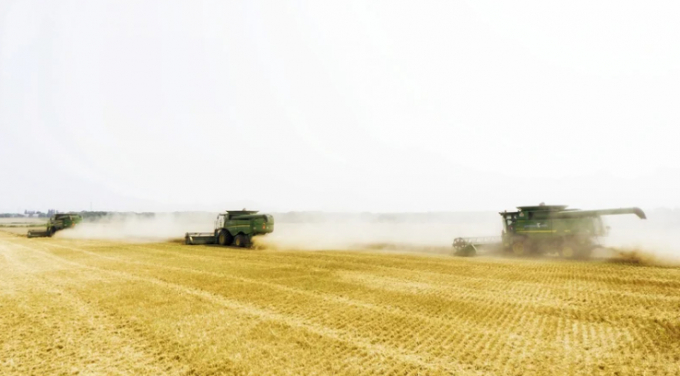
Ukraine increased grain production by 32% in 2021 to 85.7m tonnes. Photo: RTE
"This spring, as much as any spring, we must make a full-fledged sowing campaign. As much as possible," Mr Zelensky said in a televised statement.
"Because it's about life. About our life. About our future," he added.
Ukraine is a major global producer and exporter of grain and vegetable oils, but officials and farmers expect a decline in the 2022 harvest and exports due to the war.
Ukraine's agriculture producers' union said farmers were likely to reduce the area sown to sunseed, rapeseed and corn this year, replacing them with cereals like buckwheat, oats and millet.
"The emphasis will be on spring crops that will be harvestedi n the summer, because we do not know what the situation will be (going forward)," Denys Marchuk, deputy head of the Ukrainian Agrarian Council, told local television.
"For the full nutrition of its population and the armed forces, more emphasis will be placed on buckwheat, peas, those types of crops that will make it possible to harvest so that Ukraine is fully provided with food," he said.
Ukraine traditionally starts spring field work in late February or in March. Farmers say they will start sowing in safe areas as soon as they can.
Deputy agriculture minister Taras Vysotskiy said a war-induced shortage of fuel would be the main problem for farmers, as they have enough seed to proceed with spring sowing.
Ukraine has already suspended exports of rye, oats, millet, buckwheat, salt, sugar, meat and livestock in the face of the invasion. It has also introduced licences for wheat, corn and sunflower oil exports.
Ukraine, the world's largest exporter of sunflower oil, forecast before the invasion that it could export more than 60 million tonnes of grain, including 33m tonnes of corn and 23m tonnes of wheat, in the 2021/22 July-June season.
The agriculture ministry said Ukraine had exported 43m tonnes of various grains in the 2021/22 season as of 23 February, the day before the invasion.
Ukraine increased grain production by 32% in 2021 to 85.7m tonnes.
Meanwhile French President Emmanuel Macron has warned that Russia's attack on Ukraine will "deeply destabilise" food supplies in Europe and Africa as some of the world's most fertile agricultural land goes unplanted.
"Europe and also Africa will be very deeply destabilised as regards food because of what can't be planted right now in Ukraine," Mr Macron told reporters after an EU leaders' meeting at Versailles Palace outside Paris.
"We will have to prepare for that and re-evaluate our production strategies to defend our food sovereignty... but also to be able to define a strategy concerning Africa," he added.
Without it, he warned, "several African countries will be affected by famines within 12 to 18 months precisely because of the war."
The French leader added that still more economic punishment would be piled on Russia if it continues its invasion of its neighbour.
"If things continue in the military way... we will take further sanctions, including massive sanctions," he said, trailing a G7 statement on potential further measures "in a few hours".
"All options are on the table," he added, after EU nations have held off in the first weeks of the conflict from cutting off crucial oil and gas imports from major supplier Russia.
G7 urge nations not to limit food exports
Elsewhere the Group of Seven industrialised nations have urged countries not to limit their food exports after a meeting of their agriculture ministers to discuss the crisis.
"We call upon all countries to keep their food and agricultural markets open and to take precautions against unjustified restrictive export measures," the G7 agriculture ministers said in a joint statement.
The agriculture minister from Germany, which currently holds the presidency of the G7, said he was "very concerned" about the potential impact of countries shutting off exports.
"If everyone thinks of themselves in this situation, it will exacerbate the crisis and cause prices to shoot through the roof. These are avoidable costs that we do not need - the crisis is already bad enough," Cem Ozdemir said.
Asked about potential sanctions on Russia's agricultural industry, Ozdemir said the discussion was "similar... to the one we are having in other areas, such as energy".
"I wish we were more independent, but we are not in this area, which is why I think the honest answer is that we first look at everything together and examine it, but we do not make isolated decisions that also have an impact on others," he said.
Yesterday Russian President Vladimir Putin warned food prices will soar because of sanctions since Russia is one of the world's top fertiliser producers.
(RTE)
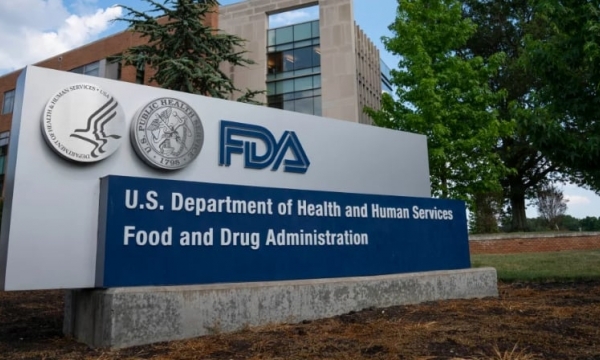
(VAN) Early tests of pasteurized milk–purchased at grocery stores in areas with cows that have tested positive for H5N1–suggest that it is not infectious and wouldn’t be able to make people sick, FDA said.
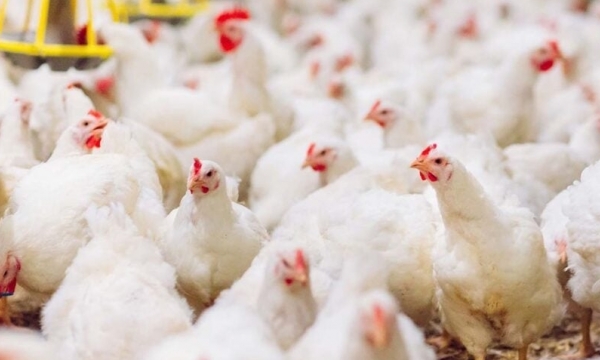
(VAN) 'The new rules prohibiting free range make organic production impossible,' the Union said.
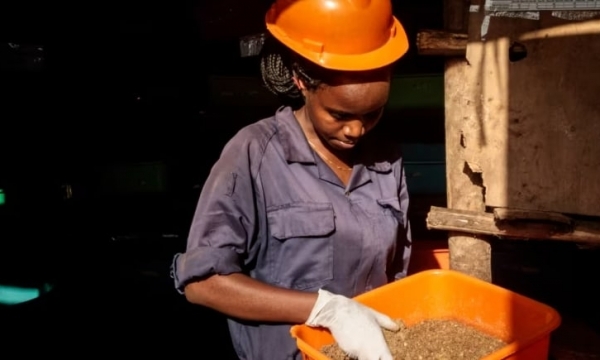
(VAN) Like a lot of other input costs, inflation proves to be another factor affecting how much farmers pay for fertilizer.
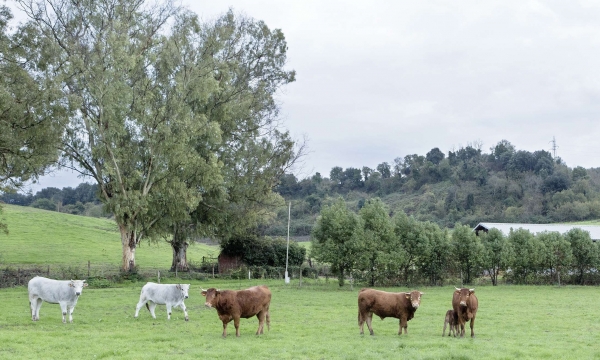
(VAN) RENOFARM, or Reduce the Need for Antimicrobials on Farms for Sustainable Agrifood Systems Transformation already piloted in Indonesia, Uganda and Nigeria
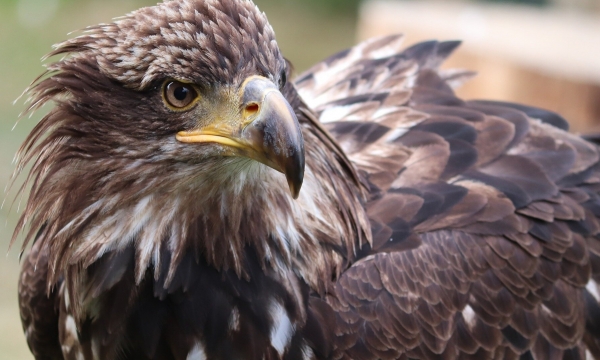
(VAN) Since 2022, a highly contagious strain of bird flu has spread across the U.S. at an unprecedented rate, resulting in the deaths of more than 90 million birds, plus thousands more in the wild.
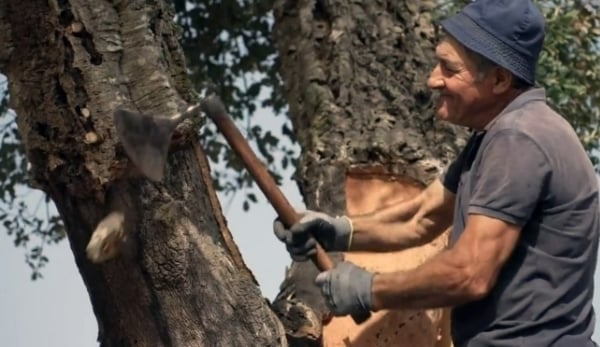
(VAN) 'It’s a product that answers all the challenges we have as a society.'
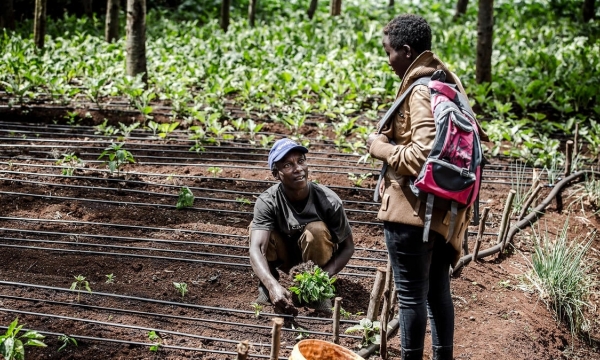
(VAN) FAO workshop highlights success stories, including from Benin, that provide models for replication.